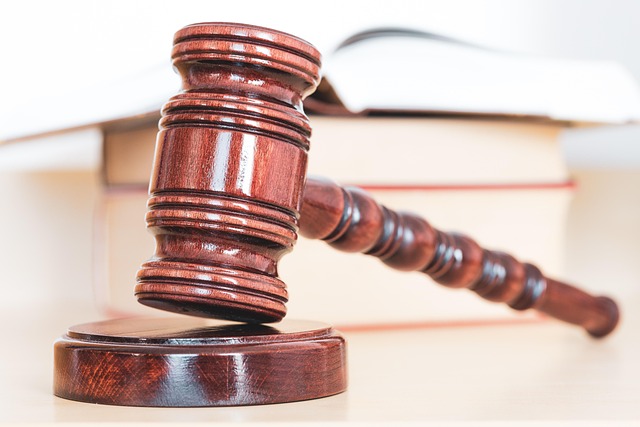The Securities and Exchange Commission (SEC) is a key player in Securities Law Enforcement, tasked with preserving the integrity of U.S. financial markets by investigating and prosecuting white-collar crimes like fraud, insider trading, and other federal securities law violations. They employ powerful investigative tools, including data analytics and technology, to uncover and penalize offenders, while balancing swift action with due process. The SEC's multifaceted approach, combined with international cooperation, is crucial for deterring financial crimes, protecting investors, fostering transparency, and maintaining market stability in today's complex economic environment.
“Uncovering financial fraud is a critical aspect of maintaining market integrity, and at the forefront of these investigations stands the Securities and Exchange Commission (SEC). This article provides an in-depth look at ‘Finance Crime Probes,’ exploring the essential role of the SEC in securities law enforcement. We’ll examine the agency’s mandate, powers, and strategies while shedding light on challenges faced. Furthermore, it delves into the impact of SEC interventions and their future directions, offering a comprehensive overview of this complex yet vital process.”
- Understanding Finance Crime Probes: A Comprehensive Overview
- The SEC's Mandate and Powers in Securities Law Enforcement
- Key Strategies and Challenges in Conducting Effective Probes
- Impact and Future Directions: Enhancing Market Integrity through SEC Intervention
Understanding Finance Crime Probes: A Comprehensive Overview

Finance Crime Probes are a critical aspect of maintaining integrity within the financial sector. These investigations, often involving complex white-collar and economic crimes, require meticulous strategies to uncover fraud and hold perpetrators accountable. The Securities and Exchange Commission (SEC) plays a pivotal role in Securities Law Enforcement, acting as a guardian against illegal activities that manipulate markets and defraud investors. By utilizing its extensive powers and resources, the SEC investigates and prosecutes cases related to insider trading, market manipulation, accounting fraud, and other financial malfeasance.
The process involves gathering evidence, conducting interviews, and analyzing financial records. Once sufficient evidence is gathered, the SEC may pursue administrative proceedings or refer cases for criminal prosecution, including jury trials. This multifaceted approach ensures that offenders face significant consequences, deterring future crimes and restoring public trust in the financial markets. The SEC’s involvement in these probes is crucial for upholding fair practices, protecting investors, and fostering a transparent economic environment.
The SEC's Mandate and Powers in Securities Law Enforcement

The Securities and Exchange Commission (SEC) plays a pivotal role in securities law enforcement within the United States. Established by the Securities Exchange Act of 1934, its mandate is to regulate and ensure fair, orderly, and efficient markets, protecting investors, and facilitating capital formation. The SEC wields significant powers to enforce federal securities laws, investigating and prosecuting various financial crimes, including fraud, insider trading, and market manipulation.
This regulatory body has the authority to conduct inspections, issue subpoenas, gather evidence, and bring civil or criminal actions against individuals or entities suspected of violations. By overseeing all stages of the investigative and enforcement process, from initial complaints to trials and appeals, the SEC works tirelessly to uphold the integrity of the financial markets. Its expertise in white-collar defense strategies also enables it to adapt to evolving financial crimes, ensuring that market participants are held accountable for their actions.
Key Strategies and Challenges in Conducting Effective Probes

Conducting effective probes into financial crimes is a complex task, requiring a multifaceted approach to unravel intricate schemes. Key strategies include leveraging advanced data analytics and technology for evidence detection, employing undercover operations and informants to gather insider information, and coordinating with regulatory bodies like the SEC (Securities and Exchange Commission) in securities law enforcement. The SEC plays a crucial role in maintaining market integrity by investigating fraud, insider trading, and other violations of federal securities laws.
Challenges arise from the sophisticated methods used by white-collar criminals, who often employ complex financial structures and offshores accounts to avoid indictment. Navigating these labyrinthine schemes demands exceptional investigative skills and expertise in financial forensics. Balancing the need for swift action with due process is essential, as investigators must ensure that evidence collection procedures comply with legal standards while aiming to prevent the flight of assets or destruction of crucial data.
Impact and Future Directions: Enhancing Market Integrity through SEC Intervention

The Role of SEC in Securities Law Enforcement plays a pivotal role in enhancing market integrity and protecting investors from fraudulent activities. Through its robust regulatory framework and diligent investigations, the Securities and Exchange Commission (SEC) has been successful in deterring financial crimes and ensuring fair practices. The impact of these interventions is profound, as it not only safeguards the interests of individual investors but also fosters a culture of transparency and accountability among market participants.
Looking ahead, the SEC’s future directions in securities law enforcement involve leveraging advanced analytics and technology to identify patterns of fraudulent behavior more efficiently. Additionally, strengthening international cooperation will be crucial in tackling cross-border financial crimes. As the regulatory landscape evolves, the SEC’s ability to adapt and win challenging defense verdicts against wrongdoers will continue to be instrumental in maintaining market integrity while balancing the needs of philanthropic and political communities, alongside providing a robust general criminal defense framework.
Finance crime probes play a pivotal role in maintaining market integrity, with the Securities and Exchange Commission (SEC) serving as a key guardian. By leveraging its extensive mandate and powers, the SEC effectively conducts probes that target financial misconduct, ensuring compliance with securities laws. Despite challenges, strategic approaches enhance the impact of these investigations, ultimately fostering a more robust and transparent financial landscape. The SEC’s continuous efforts underscore its crucial role in the Role of SEC in Securities Law Enforcement, reinforcing market trust and safeguarding investors.






